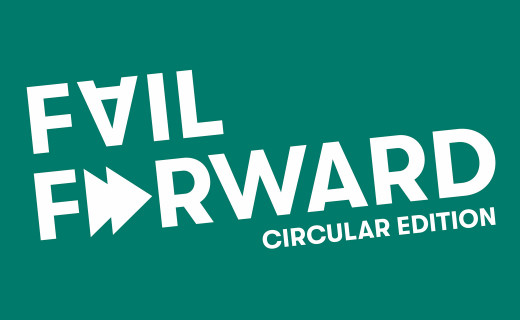At Impact Hub we believe that making mistakes and experimentation are essential to developing businesses that make real impact.
One of the areas we focus on is circular economy. In a world that is only 9,1% circular, there is an urgent need to close the gap and transition to a more sustainable economy. And impact entrepreneurs play an important role in accelerating this new economy. To bring their circular innovations to market, many successful entrepreneurs go through challenges, experiments and lessons learned.
For the circular economy edition of our popular Fail Forward series, we are inviting three inspiring entrepreneurs to tell us what they learned along the way and why strong partnerships are key in seizing circular opportunities.
SPEAKERS
The Green House | In the Netherlands, the construction sector is responsible for about half of the raw materials use, 40% of waste produced and 35% of CO2 emissions. In order for the country to become circular by 2050, we have to design, build, renovate and dismantle differently. And that's something The Green House in Utrecht has been pioneering. As the most circular building in the Netherlands, The Green House is completely modular and made from mostly recycled, reusable or leased material. It also contains a vertical farming greenhouse, as well as a restaurant which serves seasonal, locally-sourced food.
Paper on the Rocks | How do you make paper out of stone? Seems impossible? Paper on the Rocks founder Anne Pleun van Eijsden will explain how they use construction rubble and other stone waste to produce their circular notebooks, using the revolutionary Cradle to Cradle certified stonepaper. The paper industry is one of the biggest polluters in the world. Grinding down forests and swallowing unimaginable amounts of water, not forgetting the tons of CO2 emissions added to the mix. Learn how Paper on the Rocks is tackling these issues and which challenges they encountered while working towards a sustainable paper industry.
Farmed Today | Did you know 30% of food is wasted thanks to it being the "wrong" colour or shape? Farmed Today fights food waste by rescuing this food and reselling it through their online platform. Through this platform, they support sustainable and local food producers who often struggle to compete with larger companies. And purchasing from local farmers and producers means less transportation, so less CO2 emissions! As Farmed Today says: buy local, sustain global. Sounds easy, right? But creating a less wasteful and fairer food system is no piece of cake. Find out how Farmed Today dealt with difficulties and what they learned along their journey!
SPECIAL GUEST
De Nationale DenkTank (National Think Tank) - who are working on overcoming barriers to building a more circular economy - will wrap up the evening.
Stay tuned for our updates on the program!



